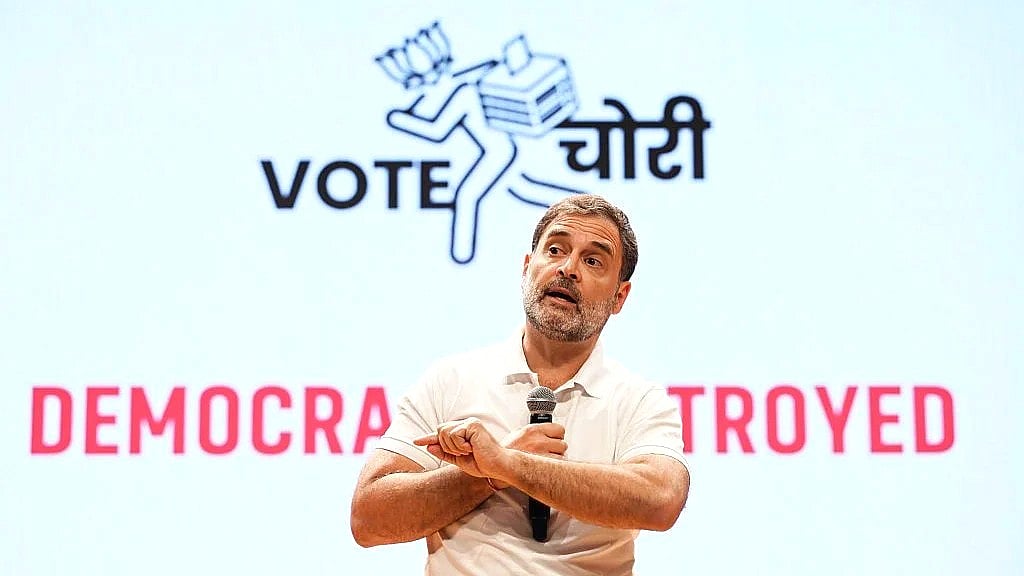POLITICS
ECI quietly shared voter data with Telangana govt, private firms: Report
Voter roll access given to BRS govt in Telangana and private technology companies, investigation by Reporters’ Collective shows

The Election Commission of India (ECI), long the custodian of one of the country’s most sensitive datasets, gave access to its voter rolls — including names, addresses and photographs — to the Bharat Rashtra Samithi (BRS) government in Telangana and private technology companies, according to an investigation by The Reporters’ Collective.
The probe shows how voter data collected for electoral purposes seeped into welfare schemes and other state systems. In 2019, the then BRS government introduced the Pensioner Live Verification System, later renamed the Real-Time Data Authentication Interface (RTDAI).
Pensioners were asked to upload selfies which were then matched against their voter ID photographs to prove identity and “proof of life”. Documents reviewed by the Collective show that private firm Posidex Technologies helped build the infrastructure that connected state departments to the ECI’s electoral photo identity card (EPIC) database.
Over time, the RTDAI’s reach grew. The Collective found evidence that the system was deployed during municipal elections in 2020, and even used in student admissions through the Degree Online Services, Telangana (DOST) platform, where photographs submitted by students were compared with voter roll images. This represents, the reporters note, a significant broadening of the use of EPIC data without public disclosure or clear legal authority.
Published: undefined
The company involved has denied direct access to voter rolls, insisting it only provided technical components at the government’s request. But state presentations and invoices examined by the Collective suggest that integration with the ECI database was in fact part of the process.
Privacy advocates have raised the alarm. Researcher Srinivas Kodali lodged a complaint in August with the Telangana chief electoral officer, arguing that sharing electoral roll photographs with multiple state departments was unlawful and in breach of a 2015 Supreme Court ruling on the limits of linking Aadhaar and voter IDs. He demanded that electoral photographs be removed from all databases outside the ECI’s control.
Published: undefined
The Commission itself has not answered detailed queries from the Collective, leaving unclear when this access was first granted, under what terms it operated, and whether it continues today. The lack of transparency, the investigation concludes, leaves unresolved questions about how one of India’s most sensitive databases is being handled.
The findings land at a moment when the ECI is already under heightened scrutiny. Lok Sabha Leader of Opposition Rahul Gandhi and the Congress party have been pressing a nationwide 'vote chori (theft)' campaign since Gandhi's initial press conference on the issue on 7 August, alleging wrongful deletions from voter rolls and demanding that the Commission release digital evidence such as logs and surveillance video.
Following Gandhi's press meet, chief election commissioner Gyanesh Kumar held a press conference last month to deny those charges, while at the same time refusing to part with the very video and digital data that critics argue could resolve the controversy, on the grounds that this would violate the privacy of "our mothers, daughters and wives".
Seen against that backdrop, the Collective’s revelations sharpen a broader concern: that electoral data meant solely for safeguarding the franchise has been diverted into welfare schemes, student admissions and even local polls, with private firms drawn into the process. The episode underscores how questions of privacy, legality and accountability now sit at the heart of public confidence in India’s electoral machinery.
Source: The Reporters’ Collective, 'ECI gave access to voter data to state govt, Pvt companies' (Sept 2025)
Published: undefined
Follow us on: Facebook, Twitter, Google News, Instagram
Join our official telegram channel (@nationalherald) and stay updated with the latest headlines
Published: undefined